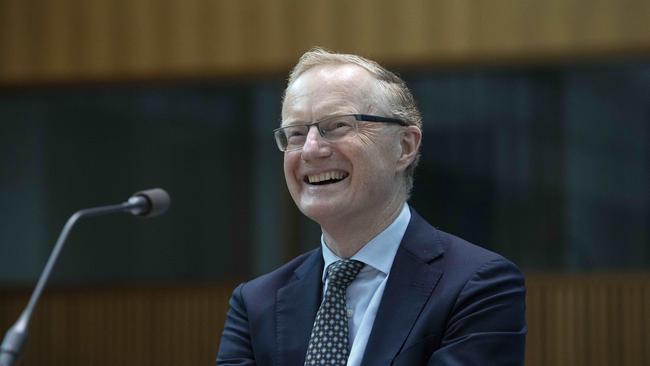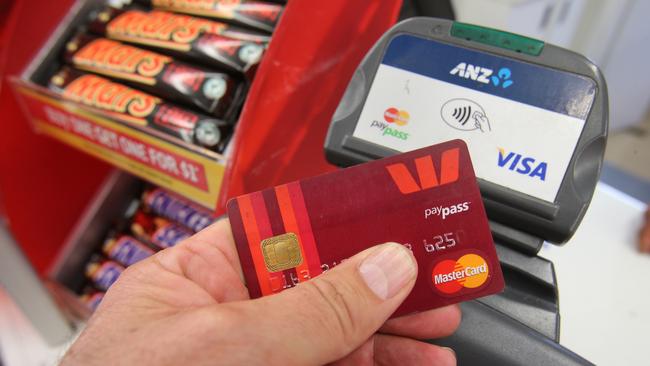RBA boss said Australians stashed cash at home during COVID-19 but we won’t become cashless
Nervous Australians have been stashing cash at home for fear of another lockdown — but the RBA boss Philip Lowe said we won’t be ditching cash anytime soon.
Business
Don't miss out on the headlines from Business. Followed categories will be added to My News.
Nervous Australians have been stashing $50 and $100 notes at home for fear of another lockdown and becoming a cashless society has been ruled out, the nation’s banking boss said.
The Reserve Bank of Australia governor Dr Philip Lowe said on Monday Australia won’t “get to the point of being a cashless society” despite many Australians turning to tap and go payments during the pandemic.
“We will have a society with less cash in it,” Dr Lowe said at the Australian Payments Network’s online forum into the innovation and regulation within the nation’s payments system.
“It’s been interesting this year, the use of banknotes for transaction purposes declined a lot, you see that in a big drop in ATM withdrawals.”
Dr Lowe said the pandemic had resulted in many Australians withdrawing money and keeping it at home in case they were unable to access their funds easily.
“This year we’ve seen very very strong demand for $50s and $100 notes, in the first days of the pandemic I think people were nervous and some people were taking their money out of the bank,” he said.

“That’s settled down pretty quickly and over recent months … many people were taking out a few hundred dollars extra to keep at home just in case something went wrong and there was a lockdown.
“They wanted to make sure they had some sort of cash to buy the basic necessities.”
RBA statistics show in October last year there was about 45 million transactions worth $10.6 billion.
This has significantly fallen in October this year to 33.5 million ATM withdrawals worth $8.9 billion in October this year.
During the pandemic many Australian businesses encouraged Australians to pay by card or device to avoid the handling of cash and coins and potential spread of germs.
But Dr Lowe said Australia would not become a cashless society like other nations which have led the way on this including Sweden and Finland.
“Cash still has an important role to play as an emergency payment method,” he said.
“We’ve all heard stories where a bank’s systems have gone down, a merchant’s internet isn’t working and they can’t do a transaction in the electronic system for something.
“In almost every case you can be guaranteed that you can use cash to make the payment.
“Many people will still want to hold cash.”
The Australian Payments Network’s chief executive officer Andy White said, “what we’re seeing here is less cash, not cashless: though cash transactions are decreasing, cash in circulation is at an all-time high”

“Consumers have been increasingly choosing secure, convenient digital payments methods over cash and this trend has accelerated during COVID-19.
“But some people will always prefer cash, and cash will also remain a fallback payment method and a store of value.”
Dr Lowe criticised the electronics payments system and said if it was “more resilient it would probably take away the desire at least for some people to hold $50 and $100 in their wallets or purse in case something went wrong”.
“We need a payments system that can work when the electronics system isn’t working and cash is the best one so far,” he said.
Dr Lowe also said issues had been raised in relation to Google and Apple wallets and the value of the data when customers use this way to pay.
“Google states that it may collect information on transactions made using Google Pay, which can be used as part of providing or marketing other Google services to users,” he said.
“In contrast, Apple states that it does not collect transaction information that can be tied back to an individual Apple Pay user.”
Apple charges a fee to issuers when customers pay this way while Google does not.
Originally published as RBA boss said Australians stashed cash at home during COVID-19 but we won’t become cashless





